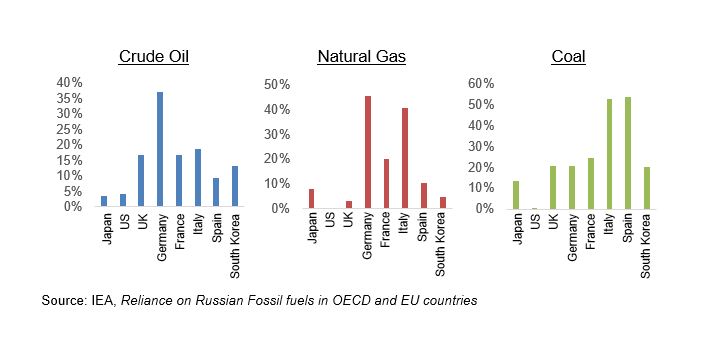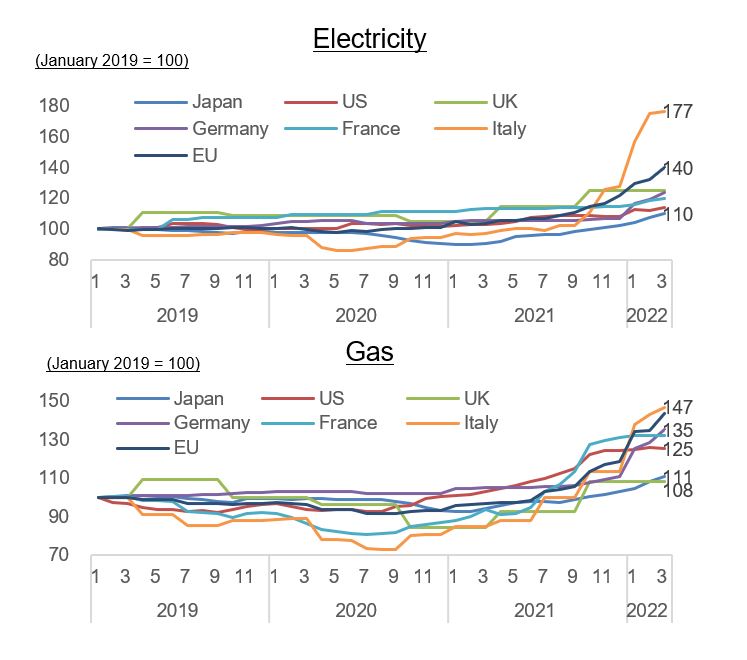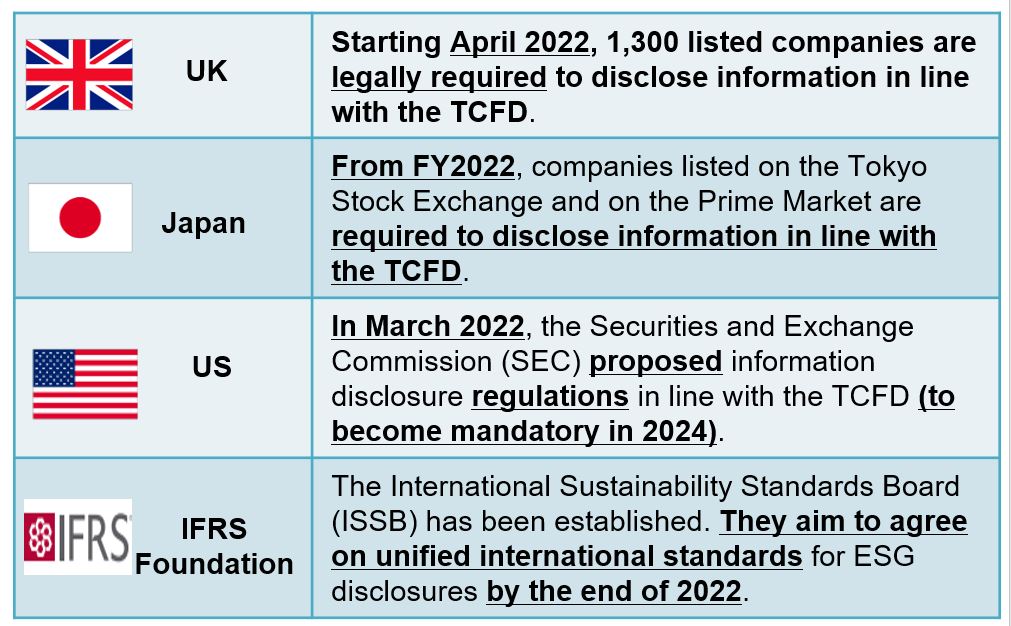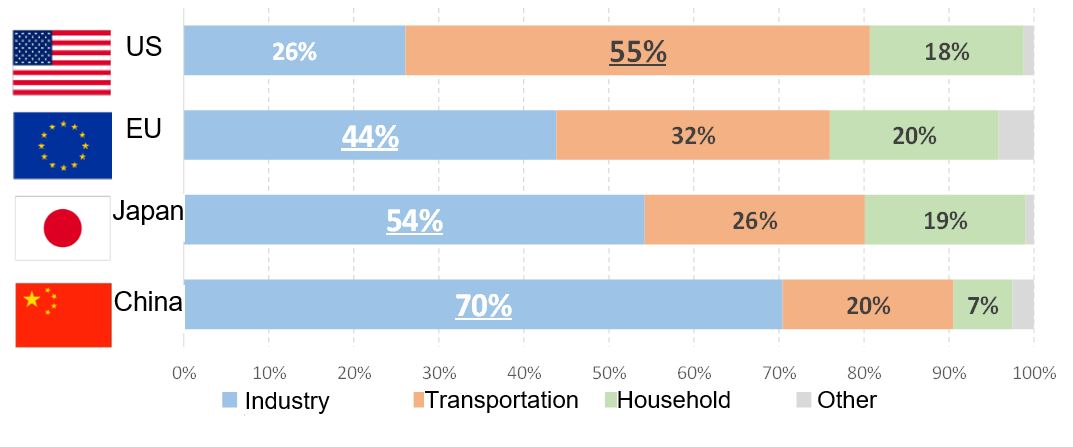- Home
- Policies
- METI Quick Reads
- Japan’s Response to Uncertainty Surrounding Global Energy - Energy White Paper 2022 -
Japan’s Response to Uncertainty Surrounding Global Energy - Energy White Paper 2022 -

Japan relies on imports for much of its energy resources and is heavily influenced by overseas conditions. Insight into local Japanese and global trends have been illuminated in the recently published 2022 White Paper on Energy. Covering topics including measures to achieve carbon neutrality by 2050, progress of reconstruction in Fukushima, and global challenges exacerbating the volatility of energy supply – such as the Russian aggression against Ukraine – the White Paper lays out how the Japanese government is addressing each issue. Some highlights are summarized below:
Tight Global Energy Demand and Accelerating Energy Price Hikes
Even before Russia invaded Ukraine, the worldwide supply and demand of energy was tightening, causing prices to soar. The drop in crude oil prices starting in 2015 slowed investment in fossil fuels, which was further spurred by accelerating decarbonization efforts. These contributed to a scarcity in energy supply. Once economies started to recover from lulls brought on by the COVID-19 pandemic, energy demand increased worldwide. At the same time, the weather and other factors also caused the failure of renewable energy projects to generate electricity as expected.
The Russian aggression against Ukraine this year has dealt an additional blow in this already harsh global situation. It has been especially difficult for Europe, who relies on Russia for fossil fuels like natural gas and oil.

Reliance on Russian Fossil Fuels (2020)
Since the invasion, import prices of fossil fuels such as crude oil, natural gas, and coal have risen sharply—more than double in the UK, the Netherlands, and Germany. This rise is greatly affecting people's daily lives. In contrast, in Japan, consumer prices have risen less thanks to measures that minimize the impact on people’s livelihoods and businesses, such as emergency relief measures against sudden fluctuations of fuel oil prices.

Source: Statistics Published by Respective National Governments
Realizing Carbon Neutrality
Carbon neutrality—in other words, the effort to achieve net zero greenhouse gas emissions—has moved beyond the conceptual stage. Leaders around the world are now putting together plans and developing rules to achieve their targets. The UK, the US, and Japan, for example, have made progress by demanding that listed companies disclose information via reporting formats set by the Task Force on Climate-Related Financial Disclosures (TCFD), which describe what companies are doing to address climate change’s potential effect on their business’s risks and opportunities. In terms of policies, countries are starting to provide actual support for building the energy structure needed for a decarbonized society. This includes advancing electrification, decarbonizing power sources via hydrogenation, CCUS, and other methods.

Growing Pressure on Listed Companies to Disclose Climate-change-related Information
Each country's unique energy situation shapes its path towards achieving carbon neutrality. For example, Japan and China are working on measures to reduce CO2 emissions at the industrial level while Europe is introducing measures for consumers at the household level and the US is focusing on transportation.
Ratio of CO2 Emissions Reductions Necessary by Sector (Non-power) for Each Country to Achieve 2050 Targets
Source: Created by METI Using the IEA's World Energy Outlook 2021
Moving Forward on Decommissioning and Rebuilding Local Communities
In the eleven years since the Great East Japan Earthquake and TEPCO Fukushima Daiichi Nuclear Power Station accident, decommissioning is progressing steadily. All fuel has now been removed from the spent fuel pools in Units 3 and 4, and full-scale testing of the robotic arm that will remove fuel debris (melted fuel that has cooled and solidified) has begun.
The Japanese government is working to create new industry in Fukushima via the Fukushima Innovation Coast Framework, to expand the number of people interacting with the city and to promote migration and settlement. Businesses and the local communities are making progress: approximately 2,700 operators have been able to resume operations thanks to assistance given for rebuilding, management improvement and sales channel development.
Get the Latest Insights into Japan's Energy Policies
The White Paper provides a peek into the latest challenges and solutions provided by Japan's energy policies, with deep dives into the realms of securing stable resources, making the transition to renewable energy, bolstering the domestic energy supply network against threats like increasingly severe natural disasters, and shifting to a new energy structure. All these and more future-looking insights are explained in the White Paper on Energy, available via link below.
Research and Public Relations Office, Policy Planning and Coordination Division,
Commissioner's Secretariat, Agency for Natural Resources and Energy, METI
Last updated:2022-08-05